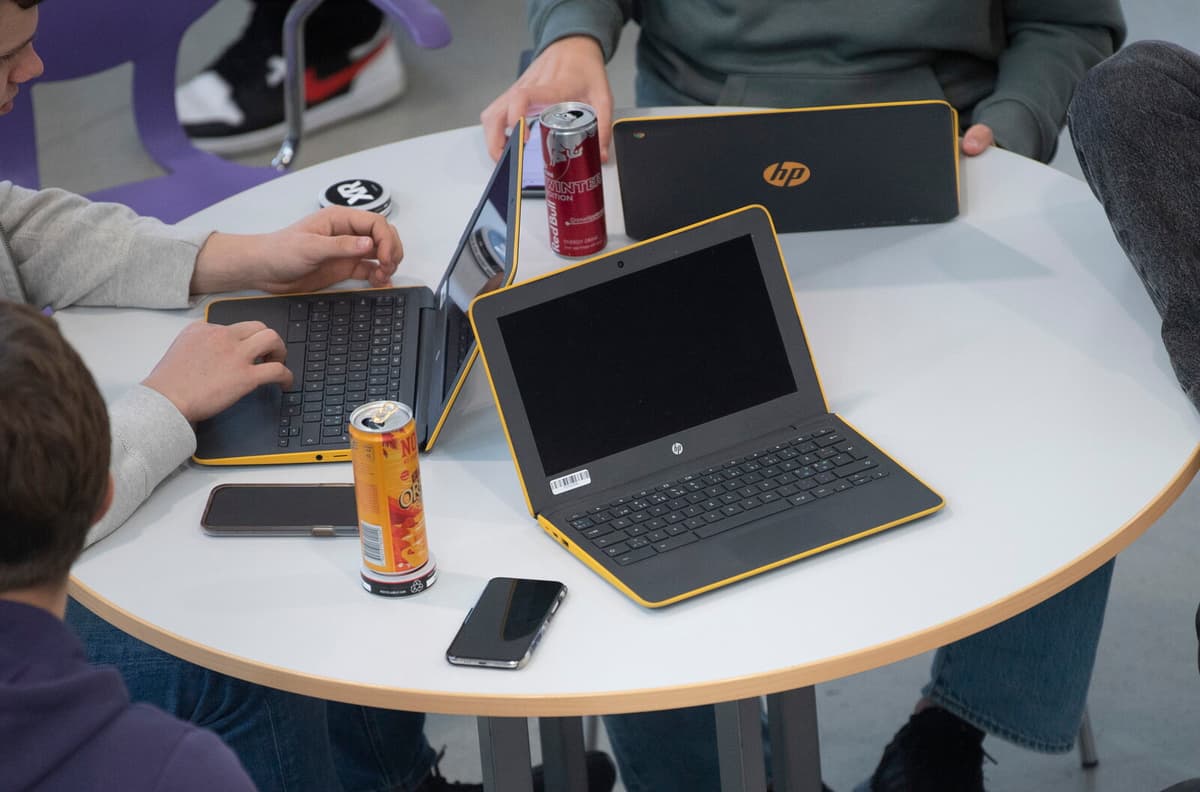Sweden was early in building up its IT infrastructure, and the Swedish tech industry has grown rapidly. Large investments have also been made in IT in schools, and the curriculum states that all subjects should contribute to developing students' digital competence.
But only now will we receive information about the digital competence of Swedish students. On Tuesday, November 12, the results of the international study Icils will be published, in which eighth-graders in 34 countries have been tested. Icils 2023 is the third measurement, but for Sweden, it is a premiere.
Neighboring country at the top
Among other countries participating in the measurement are our Nordic neighbors Denmark, Finland, and Norway. Denmark, incidentally, had the best result the second time Icils was conducted in 2018, followed by South Korea and Finland. It should be noted that fewer countries participated then.
The overall result from Icils 2018 was that students in high school age have indeed grown up with tablets, mobile phones, and computers, but many cannot work independently with the computer as a tool. Almost every fifth student did not even reach a basic level. Access is not enough; education is also needed, concluded the research organization IEA.
The upcoming report can therefore provide interesting answers to whether there has been an improvement – and how Swedish students compare to their peers in other school systems.
General knowledge
But what knowledge are students expected to have?
The central part of Icils examines to what extent students can search for relevant information on the internet and compile and present it digitally. The test also examines students' knowledge of source criticism and awareness of digital risks such as phishing emails and fake accounts.
You can say that it's general knowledge in a digitalized society with a plethora of information but also disinformation, says Fredrik Aspling, education counselor at the Swedish National Agency for Education.
The study also examines how skilled students are in the basics of programming. Sweden is also participating in this part, which is nationally elective.
It's also important considering Sweden's competitiveness. These are skills that are highly sought after on the labor market, says Fredrik Aspling.
Programming has, incidentally, been part of mathematics and technology subjects in elementary school since 2018.
In addition to the tests, principals, teachers, and students have also responded to questionnaires.
Icils stands for International Computer and Information Literacy Study.
Icils measures eighth-graders' ability to search, evaluate, and present information digitally. It also examines awareness of risks and responsibility on the internet.
In a voluntary part, logical thinking is tested, i.e., being able to describe a problem so that the computer can solve it – writing an algorithm.
Icils also includes questionnaires answered by principals, teachers, and students.
The responsible organization for the study is the international research organization IEA, International Association for the Evaluation of Educational Achievement.
The study has been conducted in 2013, 2018, and 2023.
A total of 34 countries have participated in Icils 2023.
In Sweden, 3,400 students participated, almost all of whom were born in 2008.
The Swedish National Agency for Education is responsible for the Swedish part of Icils.
Icils is the first major test of Swedish students' digital competence.
The results for 2023 will be presented on November 12.
Sources: IEA and the Swedish National Agency for Education






